Stress, exhaustion and burnout: how to support yourself effectively with medicinal plants
The strategy you need to come back to balance
Hi! This is Marie from Naturally Yours, a newsletter for people seeking simple natural paths to holistic health and emotional balance.
Today, we are going to talk about stress, exhaustion and burnout. These are complex issues, and I would like to explore them with you from a holistic perspective.
To do so, I have decided to divide the discussion into three parts. You can read them independently or approach them as whole, as they complement each other.
In this first part, you will learn how to create an effective medicinal plant-based protocol to support yourself during times of stress.
In the second part, you will discover how Bach flower remedies can help you free yourself from the patterns and emotional dynamics associated with and responsible for your stress.
Finally, the third part will present you a case study… mine! I will share with you the story of my first burnout and I will talk to you in detail about the herbal protocol and the Bach flower remedies that helped me rebalance my nervous system and avoid a second burnout last summer, when I was on the brink of it.
I invite you to subscribe below to make sure you won’t miss parts 2 and 3!
If you enjoy this article, please let me know by tapping the 💚 button or by sharing it with a friend! Thank you!
A worldwide epidemic
Stress has become a worldwide epidemic.
This is not surprising. Our modern lifestyle subjects us to constant and ever-increasing pressure: workloads are rising while we are expected to be always more productive and efficient. Simultaneously, many of us face financial difficulties, health issues, relationship struggles or worrying uncertainties about the future.
The statistics are indisputable. According to the annual WIN World survey, 79 % of individuals across the globe are experiencing stress to varying degrees. Among them, 29 % rated their overall stress levels as either quite high or very high.
This is huge. And it's something we should pay attention to! Especially since stress doesn't just affect our mental health. In the long term, it is also physically harmful.
Decreased immune response, reduced mental and cognitive functions, high blood pressure, increased risk of heart disease, digestive disorders, increased inflammation in the body and premature cell aging are just a few examples of the many damages it causes.
Did you know that, according to the American Psychological Association, 43 % of all adults suffer adverse health effects due to stress?
Despite this, stress is often seen as something inevitable we have to put up with. And most people who suffer from it will just push through, try to keep going the best they can... and wait until they reach their breaking point before addressing the situation.
But the sooner we take matters in hand, the better. Don’t wait for burnout to set in. Take action now! Wellbeing is not a luxury, it is essential to your health!
Supporting yourself with medicinal plants
When you are under stress, medicinal plants will be invaluable allies, helping you calm and rebalance your nervous system, and rebuild yourself if you are exhausted. And they will be very effective, provided you adopt the right approach!
I often hear about “anti-stress plants” or “plants that are good for stress”.
But the truth is, if you are going through a difficult period, if you have been feeling tense for a while, or worse, if you are worn out and on the verge of burnout, you are unlikely to get great results from “trying an anti-stress plant”.
Why? Because that approach is far too imprecise.
To support yourself effectively with medicinal plants during times of stress, you need a strategy!
You need a proper protocol, and it must include four essential categories of plants: the nervine tonics, the remineralizing plants, the adaptogens and the calming plants.
Let's take a closer look at them.
Nervine tonics
Nervine tonics are plants that strengthen, nourish and rebalance your nervous system, providing it with overall support. They regulate its functions, reduce sensory hypersensitivity and increase pain tolerance.
They will be a pillar of any plant-based protocol designed to treat chronic stress or burnout, as well as any nervous system disorders and/or other conditions caused or aggravated by stress such as insomnia, ADD/ADHD, exhaustion, anxiety or digestive disorders like irritable bowel syndrome.
Sometimes, it can be difficult to change the situation we find ourselves in and to avoid the factors responsible for our stress.
If you are under pressure at work or if your job no longer suits you, you might need some time to secure a new employment.
If a family member is ill and requires long-term treatment, which increases your responsibilities and workload at home, you will have no choice but to be patient.
You could also be so exhausted that any sound becomes a source of stress (the neighbour's dog barking, the construction work in your street, the phone ringing...). But these are beyond your control.
With nervine tonics, the stimuli you are exposed to remain the same, but the way you perceive them changes. You become less affected, calmer, and it becomes easier to take a step back and put things into perspective.
What is the right plant for you?
Oats, skullcap and vervain are three of the most amazing nervine tonics.
Oats (Avena sativa) is a nervine tonic, but it is also a nutritive and remineralizing plant. It is therefore an excellent choice if you are in a state of deep nervous exhaustion (after a long period of stress, a prolonged illness…), overwork and if you are depleted and lacking minerals.
You must then use the tincture (or the vinegar) made from the fresh fruits harvested at the exact moment when they are milky, not the dried plant or the flakes you can find in stores for breakfast.
Skullcap (Scutellaria lateriflora), which is also calming and antispasmodic – it helps relax the muscles –, is the ideal plant if you are feeling extremely stressed, with a lot of muscle tension, an overactive mind, or if you are hypersensitive to your environment.
Vervain (Verbena officinalis or V. hastata), for its part, is a nervine tonic, bitter and hepatic. You will choose it if you are in a state of great fatigue and exhaustion, if your digestion is slow due to stress, if you are struggling to digest fats, or if you simply want to support your liver.
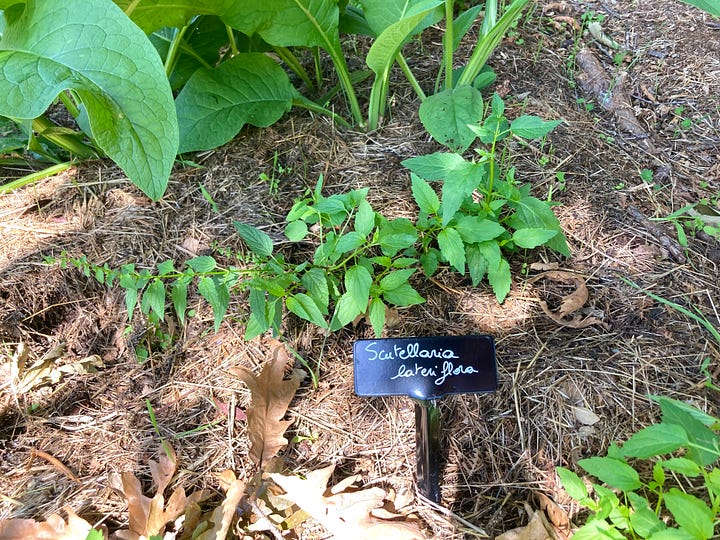
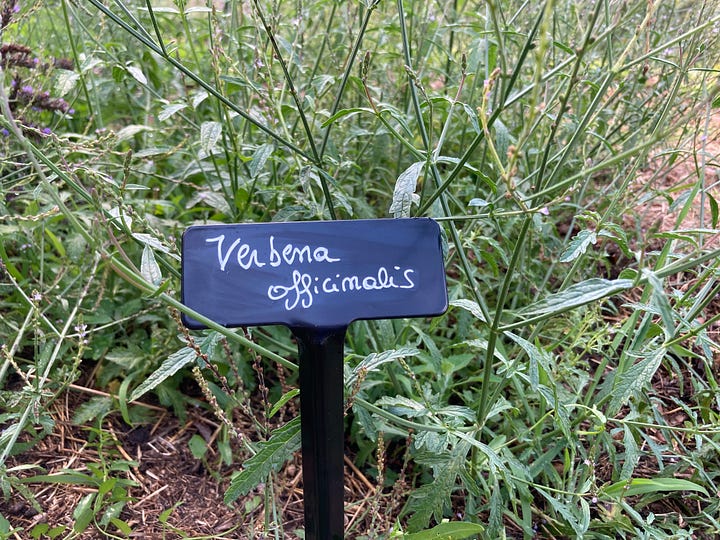
Remineralizing plants
When you are stressed, your body consumes enormous quantities of minerals, especially magnesium. As a result, you are likely to become rapidly demineralized. Then, the lack of minerals will increase your sensitivity to stress.
It is a harmful cycle that you need to break.
You can address this by taking magnesium supplements or remineralizing plants that are rich in magnesium.
What is the right plant for you?
Here, we have two key allies.
As we have just said, oats are a remineralizing plant. And they happen to be particularly rich in magnesium!
Nettle (Urtica dioica or U. urens - the leaves) contains less magnesium than oats, but it is still a very important source! Moreover, it provides much more calcium, iron, potassium and selenium than oats, as well as a huge amount of protein, vitamins and chlorophyll.
It might well be the most nutritious and supportive plant there is. More than a simple remedy, it is a food that nourishes deeply.
Nettle truly rebuilds you from within. It restores your strength, boosts your morale and revitalizes your entire body. When you take it, you feel more balanced, grounded and solid. You feel more at peace and you sleep better.
With so many benefits, this plant is one you should always keep at hand. That way, you will be able to start taking it right away when you begin to feel stressed or go through a more demanding or tiring period. It is an excellent habit to adopt.
Note that whether you choose oats or nettle, to remineralize yourself, it is not the tincture – the alcohol extraction – that will serve you best; it is the infusion or the medicinal vinegar (which you can easily prepare yourself).
Adaptogens
Adaptogens are invaluable when dealing with chronic stress.
They gradually reduce cortisol production, helping to harmonize your response to stress and allowing you to regain nervous stability. They make it easier for you to adapt and to cope – whether the stress is environmental, physical, psychological or emotional – and they strongly improve your wellbeing.
They have a global effect. When you take them, you feel calmer, stronger, your mind is clearer and you have more energy.
They also help protect your body by reducing the physical damages caused by stress and they regulate a weakened immune system.
When you suffer from chronic stress, they will prolong the phase that precedes burnout, giving you precious extra time.
But you must use them wisely! As you begin to regain strength and vitality, you might be tempted to return to the same rhythm and lifestyle that led you to exhaustion in the first place, or worse, to start pushing yourself even harder... but that would be heading straight for the wall!
Make the most of what adaptogens offer you by resting and implementing the adjustments you need to restore balance to your life.
What is the right plant for you?
If you are exhausted, whether physically or mentally, and need to regain energy quickly, Eleutherococcus(Eleutherococcus senticosus) is an excellent choice. It can also support you if you have to make an intense but temporary effort.
Ashwagandha (Withania somnifera) is a fantastic adaptogenic plant. It replenishes both your mental and physical vitality while calming you so effectively that it promotes deep and restorative sleep. Additionally, it also has anti-inflammatory properties.
This makes it the ideal adaptogen when stress is accompanied by a sleep disorder and/or an inflammatory condition.
Tulsi (Ocimum sanctum or O. tenuiflorum) is amazing in cases of intellectual fatigue, mental fog and difficulty concentrating or memorizing.
Schisandra (Schisandra sinensis) helps restore cognitive sharpness while clarifying and opening the mind. It will be your ally if you have difficulties concentrating, feel like your thoughts are slower than before, or if fatigue has diminished your intellectual capacities.
In addition, it calms the heart, making it an excellent support if you suffer from anxiety or if stress causes you heart palpitations. And it is a powerful liver protector.
Chinese astragalus (Astragalus membranaceus) is a great choice if you are in a state of burnout (or pre-burnout), are deeply exhausted, completely worn out and your immune system is deficient.
If this is your case, take it in large quantities over extended periods of time. It will nourish you to the marrow and help rebuild your immunity, all of this while protecting your liver, kidneys and heart.
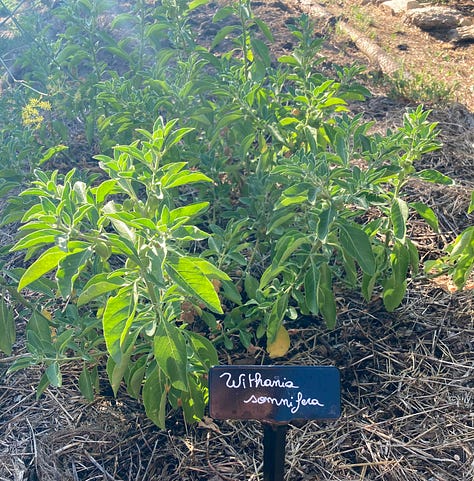
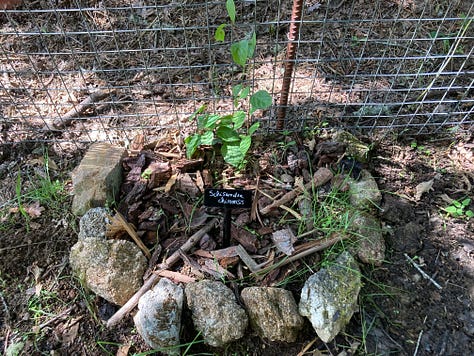
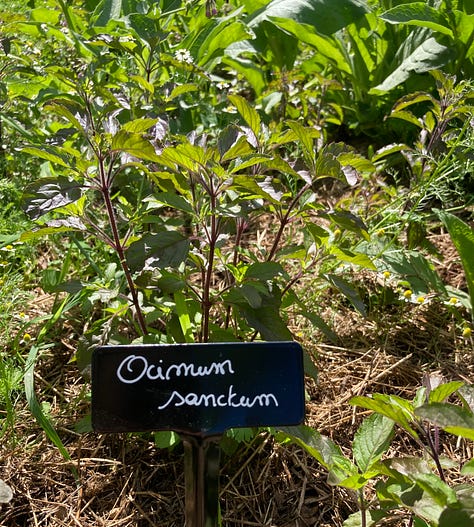
Calming plants
It is obvious, if you are stressed, you need to calm down. To do this, you will turn to calming plants. And their great advantage, compared to nervine tonics, remineralizing plants and adaptogens, is that they will provide you immediate results.
Therefore, they will be a key part of any plant-based protocol for chronic stress, but they can also be used to deal with occasional stress.
They will help you if you have just experienced a challenging event (a car accident, a problem or tension at work, you have just received some bad news…) or if a trying situation is coming up in the next few days and you are already feeling tense (an examination, a medical check-up, a family visit…).
What is the right plant for you?
There is a wide variety of calming plants we can use. Here are a few particularly remarkable ones.
Lemon balm (Melissa officinalis) is incredibly helpful if stress is affecting your digestion and/or if you are feeling anxious, melancholic or in a dark mood. And it is the best choice if you have shingles or herpes due to stress.
Chamomile (Matricaria recutita) is your ally if, when stressed, you become irritable, short-tempered, and experience digestive problems. It also provides precious support and comfort when you experience an emotional shock.
Hawthorn (Crataegus oxyacantha, C. monogyna, C. laevigata) is the plant for you if you tend to have heart palpitations when you are under pressure, if you are anxious, but also if your heart feels heavy, tired, or if it has been broken.
Skullcap (Scutellaria lateriflora), which we have already mentioned, is a nervine tonic and a calming herb, which means it can be used both for chronic and acute stress.
As we have seen, it is an excellent choice if your mind is hyperactive and if stress causes tension and pain in your neck and shoulder. In fact, it relaxes the muscles so effectively that it can even be used in cases of anxiety or panic attacks.
Like skullcap, passionflower (Passiflora incarnata) is a great support if you are experiencing anxiety or nervous tension, especially when accompanied by an overactive mind and tight muscles, or in the event of a panic attack.
Finally, lavender (Lavandula angustifolia) will be a fantastic aid if you are over-tensed, but also if you are exhausted. It will relax your muscles, ease your digestion and calm your anxiety. It is especially helpful if you are feeling a sense of insecurity that leads you into a state of hypervigilance.
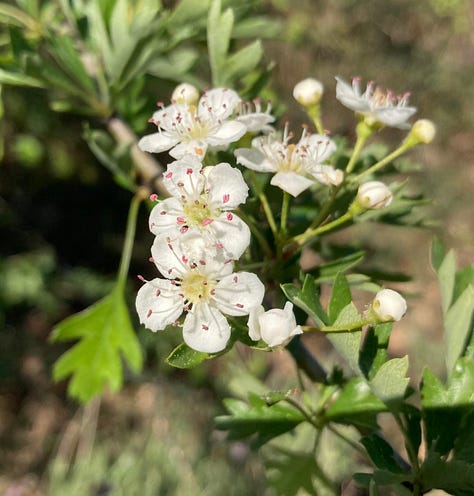
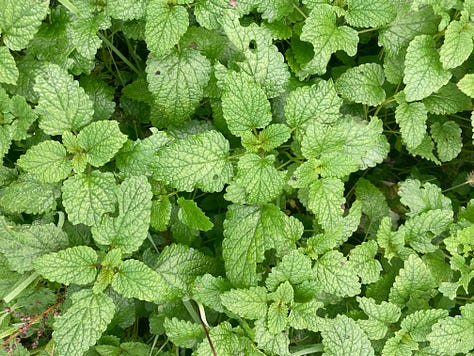

Setting up your protocol
Ideally, your medicinal plant-based protocol for stress management should include at least one nervine tonic, one remineralizing plant rich in magnesium (or some supplements), one adaptogen and one calming plant.
You can, of course, combine several herbs from the same category so that they complement each other, such as chamomile and hawthorn, or ashwagandha and Chinese astragalus.
Once you have chosen your plants and designed your program, you will need to follow it for at least 6 to 8 weeks.
You will feel the effects of the calming plants very quickly.
Nervine tonics, remineralizing plants and adaptogens, for their part, must be taken for a minimum of 2 to 4 weeks before a significant difference sets in. This is why you should use them during at least 6 weeks to fully enjoy their benefits. And you will often continue for a few months.
Please, note that the information given in this article is not a substitute for medical advice. Always use caution and consult a healthcare provider if symptoms persist or worsen.
Before taking medicinal plants, you must also ensure there are no counterindications applying to you, and no risk of interaction with your medical treatment if you have one. In case of doubt, ask your doctor’s approval.
A holistic approach
During times of stress, medicinal plants will provide you with invaluable support!
But it is important to be conscious that they need to be integrated into a broader, holistic approach.
If you suffer from chronic stress, it is essential to identify the causes of the problem and to make real adjustments!
There is no quick fix or magic solution. If you persist in a mode of functioning that is harmful to you, if you maintain a way of life that is unsustainable physically, mentally, and emotionally, the plants will only delay the inevitable burnout that looms ahead.
You might need to learn to set boundaries, whether on a personal level or at work. Perhaps you should lighten your schedule and decide to let go of an activity that is taking up too much of your time or energy, or free yourself from a toxic environment or relationship. You might also want to start practicing a sport or take up meditation to help you unwind and relax.
Stress has an important emotional component. So, the most effective strategy in the long run is to work on the patterns at its root. You can do this, as I mentioned earlier, with the support of Bach flowers, but also through many other modalities. I encourage you to explore, experiment and find what works for you!
Coming up next!
Stay with me for Part 2. Our journey will continue with Bach flowers, and you will learn how they can help you free yourself from the emotional dynamics associated with and responsible for your stress.
In Part 3, I will explain you in detail the herbal protocol that helped me avoid the burnout I was on the brink of last summer – which plants I chose, why, in what forms I took them, at what doses and for how long – along with the Bach flower mix I used and the other strategies I implemented.
I would love for us to support each other and share our experiences and wisdom.
Are you feeling stressed right now? What is your relationship with stress? Do you suffer from it often? Have you ever tried supporting yourself with medicinal plants? Which ones have you experimented with? What has helped you the most?



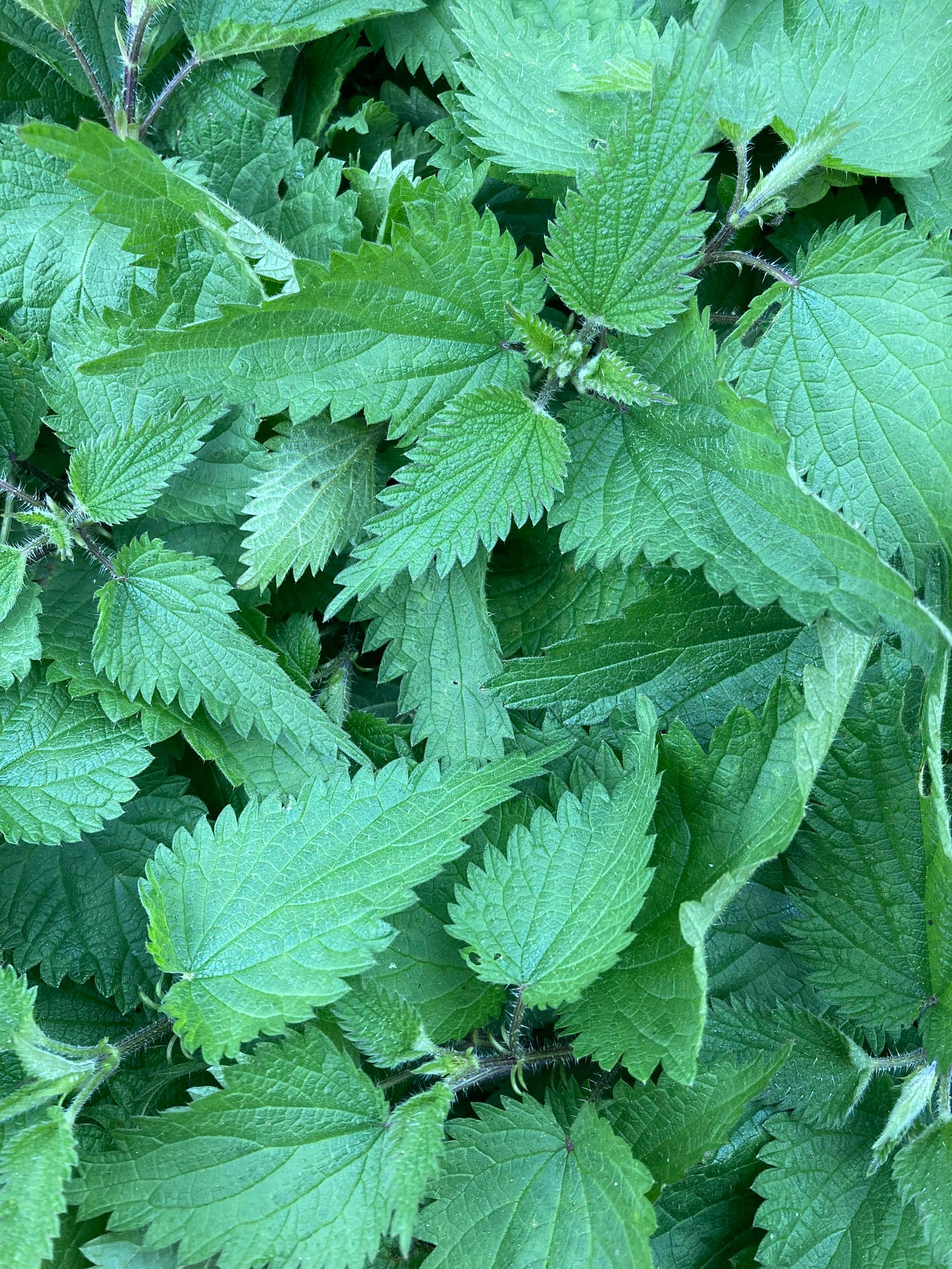

Thank you so much for sharing my article @Angelika Forray 😊🙏 I hope you found it helpful!